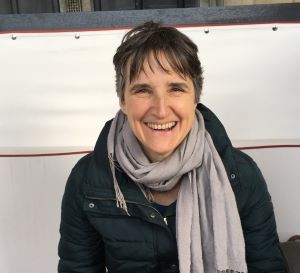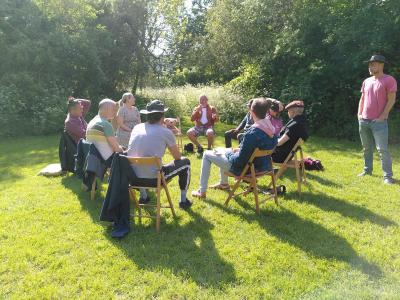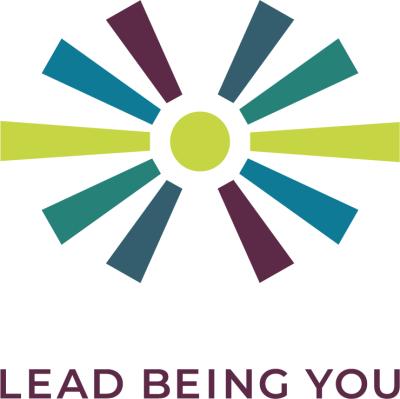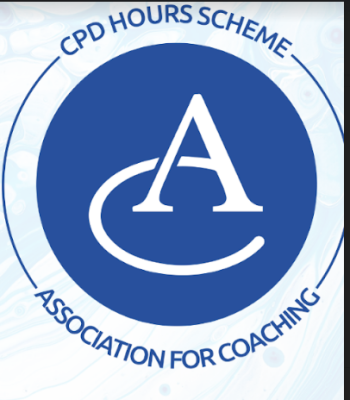Your Hosts




Where & When
You will be notified of joining instructions on comletion of booking form
Discovering a taste of these embodied practices can help increase your presence. with clients. You’ll learn to explore your own aliveness and body’s wisdom in a new way. You will also gain an understanding of the scientific evidence supporting the use of these tools. All sessions are experiential and interactive. Practice with fellow students between taught sessions will help to integrate learning.
‘Being more present in myself and listening to my gut rather than living in my head so much . This will make me a more attentive and a better coach.’
This introductory course is intended for coaches and other helping professionals.
More info on video here
It can support you to:
➤Deepen your client work through your own embodiment.
➤Bring greater presence and aliveness to your client work.
➤Become better able to process any emotional responses to difficult clients .
➤Support you to regulate your own and your client’s nervous system.
➤Feel more resourced in general and in your work with clients.
This program will provide an introductory training in the Felt Sense, Focusing, and Circling. It will also include nervous system regulation tools drawing on polyvagal toning. It also provides an introduction to Developmental Trauma, drawing on the NARM™ framework. (NARM is the Neuro Affective Relational Model).
➤Focusing helps you to gain skills at accessing and following the felt sense.
➤Circling provides a safe structure to communicate your observations
➤Polyvagal Toning provides concrete exercises to support nervous system regulation
➤The NARM™ framework provides a broad context to help understand ourselves and our clients better.
These approaches (especially combined) bring a deep level of awareness. Much deeper than is usually possible in coaching or ‘talk therapy’.
All these approaches connect in some way to the felt sense. That often-fuzzy feeling which is hard to describe because everyone has their own unique way of experiencing it! It is usually some combination of emotions, physical sensations, new awareness, and intuition. Often it holds information or wants to communicate something of importance. As such, having access to it in coaching is invaluable.
‘Being more present in myself and listening to my gut rather than living in my head so much . This will make me a more attentive and a better coach.’
Accessing the felt sense can help gain more insight into a wide range of issues.
Some examples include:
➤Make better use of their time and better priority setting.
➤Bringing needed distance in challenging relationships.
➤Supports decision-making by deep listening.
➤And many other situations that (you and) your clients may need support with.
‘Being fully present and grounded opens up new possibilities and widens our perspective. It creates a certain level of lightness and mental space. I LOVE IT!’
The course is aimed at coaches and other helping professionals who wish to deepen their own self- awareness, presence and listening skills in service of their clients. These sessions are trauma informed.
This program is suitable for coaches and helping professionals who have some knowledge of the felt sense and focusing. It is also suitable for complete beginners.
The series consists of 10 x 2 hour zoom calls. All calls take place 1830-2030 in the UK. Between each call you will be partnered with a fellow student so that you can practice your new skill.
The sessions will not be recorded. This is to respect the confidentiality and privacy of participants.
Course Outline
Session 1: Introduction, Resetting before Starting, Arrival Practices
As part of this opening webinar, you will discover a theoretical framework for the tools we will explore in the series. We begin to work with the brain-body and learn a method to help you arrive more fully into your body. This is a starting point for this kind of embodied exploration.
Session 2: An Introduction to the Felt Sense
In this session you can get into contact with your very own felt sense. You can begin to listen to what it has to tell you. This structured approach can be helpful whether you already have good access to your body’s wisdom or if it’s brand new for you.The skills developed in this webinar provide a foundation for those which follow.
Session 3: What is Focusing . Focusing Partner Exercises
Focusing is the process that Eugene Gendlin created to help anyone access their felt sense. In this session we begin to learn to follow our own felt sense. We begin to discover some of the gifts it holds for us.
Session 4: Listening as Focuser and Steps along the FocusingJourney
As coaches and helping professionals we are probably already good listeners.! Yet a big part of thsi work is what happens because of good listening presence. So, honing our listening skills is an essential component of our work together. We will also take some time to identify what needs to happen at the beginning, middle and end of a session.
Session 5: Being with What is and with Not Knowing in a Focusing Way
As we deepen our journey into the felt sense we will learn how to invite more to come into our awareness in a focusing way. We will discover the gifts of ‘being with’ and of ‘not knowing’. We will explore what it’s like to be at the Edge and listening to the Felt Sesnse to support your journey.
Session 6: Resourcing Yourself. Window of Tolerance
As we dewpend into our journey with the felt sense we can encounter challenging situations, in ourselves and in our interactions with others. In this session we will learn resourcing methods that can support us in our own lives and in our work with clients . We will draw on Focusing as well as the Window of Tolerance framing in this session. We will also introduce some polyvagal toning exercises to support nervous system regulation
Session 7: Finding Transformational Connections and Circling Practices
This session explores the relational field between self and other using circling practices and the felt sense. In this session you can experience sharing your inner experience of being with another person, and how they impact you. You will also have the opportunity to receive this special kind of attention from another person. This quality of connection is often rare in daily life.
Session 8: Focusing with Parts
We all have many different parts to us. Although we are all whole as a person, different versions of us may show up in different contexts. In this session we wil draw on the Felt Sense and Focusing to discover a unique way to access these parts, to learn about them, and to find acceptance for even our most challenging parts.
Session 9: Adaptation Strategies and the role of shame
Many clients come to us to deal with maladaptive shame based adaptation strategies. Strategies such as people pleasing and perfectionism. These stratgies may have been useful once but no longer serve us well. You will learn how the felt sense can support you to learn more about how these strategies play out in your own life and in that of your clients. In this session you will discover the Lead Being You Adaptation Styles (which are draw on NARM, the Neuro Affective Relational Model)
Session 10 : Using the Felt Sense In Coaching or Therapy: Application to our work with Clients
Using a theoretical framework provided by scholars such as Heinz Kohut and Iain McGilchrist we begin to integrate our own embodiment skills with our work with clients as a coach or therapist . You will learn how to hold space for a client so that they can have their own felt sense experience whilst working on an issue or topic. Tthis final session will help to integrate this learning more deeply. This is also an opportunity to discover how to further develop these skills going forward.
After successful completion of the course participants will gain 30 hours CPD from the Association for Coaching and a Level 2 Certificate in Focusing.
In addition to the group calls there will be the following
1:1 sessions as part of the program with the course leader
➤Optional 15 minute intake call (before the start of the course)
➤60 minute focusing session with a credentialed Focusing Practioner
➤30 minute embodied coaching call with the course leader
➤15 minute closing call to reflect on the training programme and your leaerning throughout the course
Bonus
Additional focusing and embodied coaching sessions will be available throughout the course at 50% of regular fees for the duration of the course
Reflective Practioner Journal to support your development as a Reflective Practitione
There will be a maximum of 12 participants.
Some feedback from previous participants
‘Being more present in myself and listening to my gut rather than living in my head so much . This will make me a more attentive and a better coach.’
‘With these tools I will be able to create much deeper connections with the clients. Some of the techniques are also useful for my own wellbeing.’
‘Being fully present and grounded opens up new possibilities and widens our perspective. It creates a certain level of lightness and mental space. I LOVE IT!’
Contact
Registration Information and Price
Costs
Super Early Bird (Before Decembrr 31st ) £300 (+ VAT)
Early Bird (Before Jan 22nd ) £350 (+VAT)
Regular Fee £495 (+VAT)
If you wish to attend but are in financial difficulty, please contact me as some reduced fee sponsorship spaces may be available.
